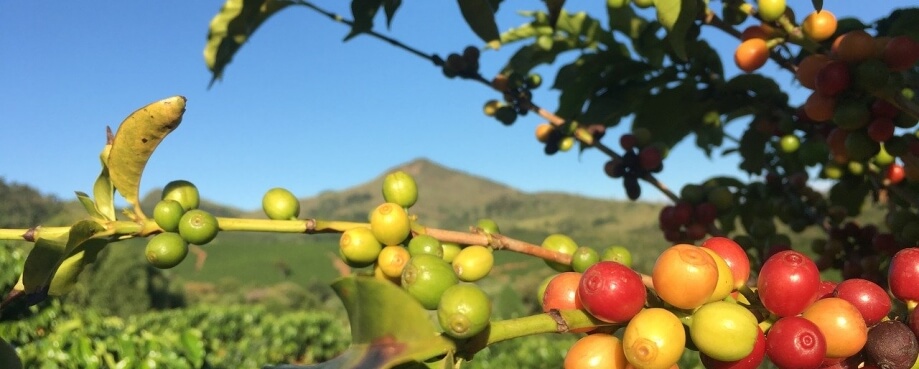By
Peter Williams
NGO Co-ordinator
Ethical Trading Initiative
A recent Oxfam report found that collective bargaining had improved working conditions on tropical fruit farms in Northeast Brazil, and reduced the vulnerability of women seasonal workers. Peter Williams , the report’s author, asks if partnering with unions and promoting better industrial relations could be a more sustainable approach to ethical trade than audits and enforcement.
The tropical fruit sector in Brazil has by no means the worst record on workers’ rights and conditions. A government policy of steadily raising and proactively enforcing the minimum wage, coupled with clear labour laws, have raised incomes and reduced inequality between men and women workers in Brazil over the past 20 years.
However, these gains are now at risk from recent labour reforms.
Sweet & Sour – an investigation of conditions in tropical fruit farms in Northeast Brazil, is based on interviews with farm workers carried out by local investigators led by Oxfam in Brazil as part of its campaign to end human suffering in food supply chains.
Seasonal workers on farms producing mangoes, grapes and other tropical and out-of-season fruit for export to the UK, Europe and USA complained of poor working conditions and in-work poverty. Employed on temporary contracts, seasonal workers have fewer rights, and over the year are unable to meet their families’ basic needs. Women are particularly vulnerable, because their caring responsibilities mean they cannot migrate to the cities to look for work in low season.
This vulnerability and lack of job security affects their ability to speak out about abuses. On the worst farms women workers reported harsh treatment and a work relationship based on tension and fear. Permanent workers also complained of poor health and safety practices and inadequate protection against exposure to pesticides and other agrochemicals, resulting in injury and work-related disease.
Researchers found good practice in the São Francisco Valley around Petrolina (Pernambuco State) where trade unions have negotiated better pay and conditions for 130,000 workers in the fruit sector. These include women-friendly policies around provision of crèches, breastfeeding breaks, time off for taking children to the doctor, better protections for temporary workers and a host of other improvements over the legal minimum.
At its best, Brazil’s fruit sector signposts a more effective approach to ethical trade, which could be a model for supply chains globally. Oxfam found good practice, with fruit growers sitting down with unions to discuss working conditions. Collective bargaining was effective in finding solutions, even to seemingly intractable issues like the vulnerability of seasonal workers on short-term contracts.
The research suggests that empowering workers and their employers to reach agreements about what is achievable in the local context is likely to have more sustainable outcomes than audit and enforcement.
Supermarkets could work with trade unions on due diligence and in implementation, and support workers’ access to trade union representation and collective bargaining through their policies and sourcing decisions.
Oxfam is calling for:
- Improved transparency from supermarkets and suppliers, with supermarkets publishing the names and addresses of their suppliers, down to farm level, in Brazil and elsewhere. This would allow local civil society and trade union groups to alert supermarkets and suppliers to concerns.
- Better legal protections for workers. The Brazilian government should maintain the policy of progressively raising the real value of the minimum wage and review the impact of the 2017 labour reforms against their intended outcomes. Supermarkets can play a role in advocating better legal protections for workers and a minimum wage that meets basic family needs to the Government of Brazil and governments in other countries.
- Engagement with unions in monitoring, due diligence and implementation. Empowering workers and their employers to reach agreement about what is achievable locally – and ensuring women’s voices are heard – is likely to have more sustainable outcomes in delivering decent working conditions and wages that exceed the legal minimum standards.
Peter Williams writes in a personal capacity.
Footnote
Researchers asked the Petrolina Rural Workers Union, currently headed by a women, Lucilene Santos, what lay behind their success in improving conditions. They mentioned support from Oxfam, which had funded training for workers and a membership drive in the 1990s. A modest grant of US$ 5,000 (£3,500) for two years gave a kick-start to trade union organisation in the newly emerging irrigated fruit sector in the Sao Francisco Valley.
Over the last 25 years, that small Oxfam grant has resulted in tens of thousands of farm workers being able to access their union rights, and by sitting down with their employers in collective bargaining, to negotiate better wages and conditions. While wages on fruit farms are still too low, collective bargaining has increased farm workers’ incomes, bringing millions of dollars into the local economy, and prevented the labour abuses which are sadly still found on farms in other countries and elsewhere in Brazil. That small grant changed how the tropical fruit sector developed in the Sao Francisco Valley.
I should declare an interest. I was working with Oxfam in Brazil in 1993 and approved the grant!
Peter Williams
Reproduced from: https://www.ethicaltrade.org/blog/working-partnership-unions-more-sustainable-approach-auditing
